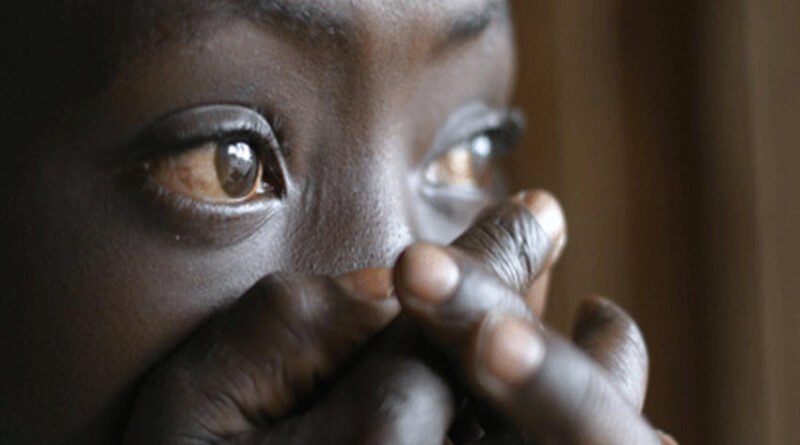A culture of silence: Unethical practices of Nigerian lecturers
By Umma Getso – Kano
What should be the relationship between a university lecturer and his student? How should the lecturer treat the students? What role does a lecturer play in the development of an undergraduate student? What are the roles of professors and doctors who are members of project/research defence panels and supervisors of postgraduate students?
These are some of the questions that should guide the conduct and attitude of lecturers in Nigerian tertiary institutions. However, it seems that many lecturers have forgotten or ignored their ethical obligations and responsibilities towards their students.
Over the years, there have been multiple reports of intimidation, harassment, bullying and victimization of university students by lecturers and supervisors. These ill treatments come in the form of psychological torture through insults, curses, public embarrassment, threatening to fail a student, etc. Sometimes it is physical like the prevalent sexual harassment cases we have had of late.
Similarly, in recent times, through interactions with different student groups, I have personally received a baffling number of reports of these kinds of abuses. Lecturers boldly insults and threatens to deal with university students. Lecturers force students to buy books and plagiarized handouts they author against school rules. Some supervisors demand their students to pay them so as to have their projects done for them. Principal supervisors demand some sort of bribe for leniency, before they review their students’ work, or before they can provide necessary guidance.
Should a student refuse or resist these compromises, the lecturers and supervisors become abnormally harsh on such student.
What is more baffling about this is the fact that many Nigerian students have accepted these kinds of ill treatments as normal. Advising victims of the wicked act to take recommended action against such unscrupulous lecturers require a lot of convincing if not coercing.
Where does this wrong new normal come from into our universities? Are lecturers and students well acquainted with the public rules and their university policy on the subject? What should a victimized student, especially the one that is “a child of nobody”, do?
Master-Servant Dynamic
As to the roles of lecturers towards their students, we could aggregate it to be that of a leader. According to Ubah and Atakpu in their “Theory N” hypothesis, one of the major problems of leadership in Nigeria is the transfer of the master-servant relationship between traditional rulers and their subjects to unorthodox settings. Most times in Nigeria, the man in a position of authority is the master while those under his leadership are the servants. As such, the “master” can do and undo without any questions being asked.
This is the mindset of lecturers that victimizes their students. It can be argued to be the genesis of the malady. Such unethical lecturers see themselves and act like demi-god. After all, the students are servants and have nothing to do.
Beyond the master-servant dynamic, some lecturers perpetrate the act out of sheer wickedness and greed. Uncontented with the legitimate earnings, they seek alternative means to fill their pockets and satisfy uncontrolled desires.
Another contributory factor is the poor implementation of policies. The federal government of Nigeria through regulatory agencies such as the National University Commission (NUC) has laid out guidelines against maltreatment of students, and every tertiary institution in Nigeria has policies to the same effect. Yet, effective enforcement of ethical standards and regulations in Nigerian universities remains at minimum.
Impacts of Intimidation and Victimization on Students
Intimidation and victimization within the university setting have far-reaching consequences that extend well beyond the immediate experience. These harmful behaviours, often perpetrated by lecturers and supervisors, create a toxic environment that negatively impacts the emotional well-being, academic progress, and overall development of university students. It is crucial to shed light on these impacts and work towards eradicating such practices to ensure a safe and conducive learning environment for all students.
Mental and Emotional Health
Intimidation and victimization take a significant toll on the mental and emotional well-being of university students. Constant exposure to insults, threats, humiliation, and harassment erode their self-esteem, leading to anxiety, depression, and other psychological issues. The fear of retribution and the anxiety caused by navigating a hostile environment impede students’ ability to concentrate, learn, and perform academically. The long-term effects can be devastating, affecting their personal relationships, career prospects, and overall quality of life.
Academic Performance
The impact of intimidation and victimization on academic performance cannot be understated. Students who experience these practices often suffer from reduced motivation, decreased self-confidence, and heightened stress levels. The fear of failure, combined with the demoralizing effects of mistreatment, hinders their ability to engage actively in their studies. Consequently, students may experience a decline in grades, withdrawal from academic activities, or even drop out altogether, truncating their educational journey and limiting their future opportunities.
Personal Development
University is a pivotal time for personal growth, self-discovery, and the development of critical life skills. However, intimidation and victimization disrupt this process, hindering students’ ability to explore their full potential. The constant fear of reprisal stifles creativity, critical thinking, and intellectual curiosity. Students may become hesitant to express their opinions, ask questions, or engage in meaningful discussions. The suppression of these essential developmental aspects restricts their ability to become well-rounded individuals, impacting their professional growth and societal contributions.
Career Prospects
Intimidation and victimization can have lasting effects on students’ future career prospects. The negative experiences endured during their university years can erode their self-belief, resulting in diminished confidence when entering the job market. Furthermore, the emotional scars and trauma inflicted by mistreatment can manifest during interviews, presentations, or networking events, hindering their ability to effectively showcase their skills and abilities. These impacts can limit their opportunities for career advancement and professional success.
Long-Term Consequences
The consequences of intimidation and victimization extend far beyond the university years. The trauma and negative experiences can shape students’ perceptions, attitudes, and behaviours in their personal and professional lives. The mistrust and fear instilled by mistreatment can affect their relationships, making it challenging to form meaningful connections and collaborate effectively with others. Moreover, the normalization of such practices perpetuates a cycle of abuse, as victims may unknowingly perpetuate these behaviours in their future roles of authority.
Breaking the Silence Culture and Promoting Ethics among Nigerian Lecturers
To curtail these unethical practices and foster a safe and supportive learning environment, it is imperative to implement comprehensive measures.
Creating Awareness Through Matriculation Programs
To address the root causes of victimization and intimidation, it is essential to raise awareness among incoming students during matriculation programs. These programs should include dedicated sessions on ethical conduct, student rights, and available support services. By informing students about their rights and the potential consequences of mistreatment, universities can empower them to recognize and report unethical behaviours, fostering a culture of accountability and respect from the outset.
Periodic Campaigns Against Mistreatment
Regular campaigns targeting both staff and students are instrumental in combating victimization, intimidation, and harassment. These campaigns should aim to educate all stakeholders about the detrimental effects of such behaviours on individuals and the academic community as a whole. Through workshops, seminars, and awareness campaigns, universities can create safe spaces for open dialogue, encourage reporting, and establish a zero-tolerance policy towards mistreatment.
Empowering Staff Through Entrepreneurship and Business Development
Increasing entrepreneurship and business development opportunities for university staff can help alleviate the financial pressures that may contribute to unethical practices. By fostering an entrepreneurial culture and providing support for staff to explore income-generating ventures, universities can reduce the reliance on meagre salaries and create avenues for staff to increase their earning capacity. This can help mitigate the temptation to exploit students for personal gains, fostering a more equitable and conducive learning environment.
Strengthening Support Structures
Efficient support structures are paramount in ensuring the well-being of students and encouraging the reporting of mistreatment. Universities should establish dedicated offices or units that provide confidential channels for reporting incidents of victimization, intimidation, and harassment. These offices should be adequately staffed with trained professionals who can offer counselling, guidance, and advocacy to affected students. Moreover, whistleblower protection mechanisms must be implemented to safeguard those who come forward with reports of misconduct.
Promoting Ethical Codes of Conduct
In addition to awareness campaigns, universities should develop and enforce comprehensive ethical codes of conduct for both staff and students. These codes should explicitly address issues of victimization, intimidation, and harassment, setting clear expectations for professional behaviour. Regular training sessions and workshops should be conducted to reinforce these ethical principles and foster a culture of respect, empathy, and equality within the academic community.
Conclusion
Victimization, intimidation, and harassment have no place within academic institutions. By implementing proactive strategies, such as awareness lectures during matriculation programs, hosting periodic campaigns against mistreatment, and promoting entrepreneurship and business development opportunities for university staff, we can create an environment where all individuals are treated with dignity and respect. It is crucial for universities to prioritize the well-being of their students and staff, fostering a culture of accountability and providing the necessary support structures to curtail unethical practices. Together, we can create a transformative educational experience that empowers and uplifts every member of the academic community.
Umma Getso is a public affairs analyst and activist from Kano.






